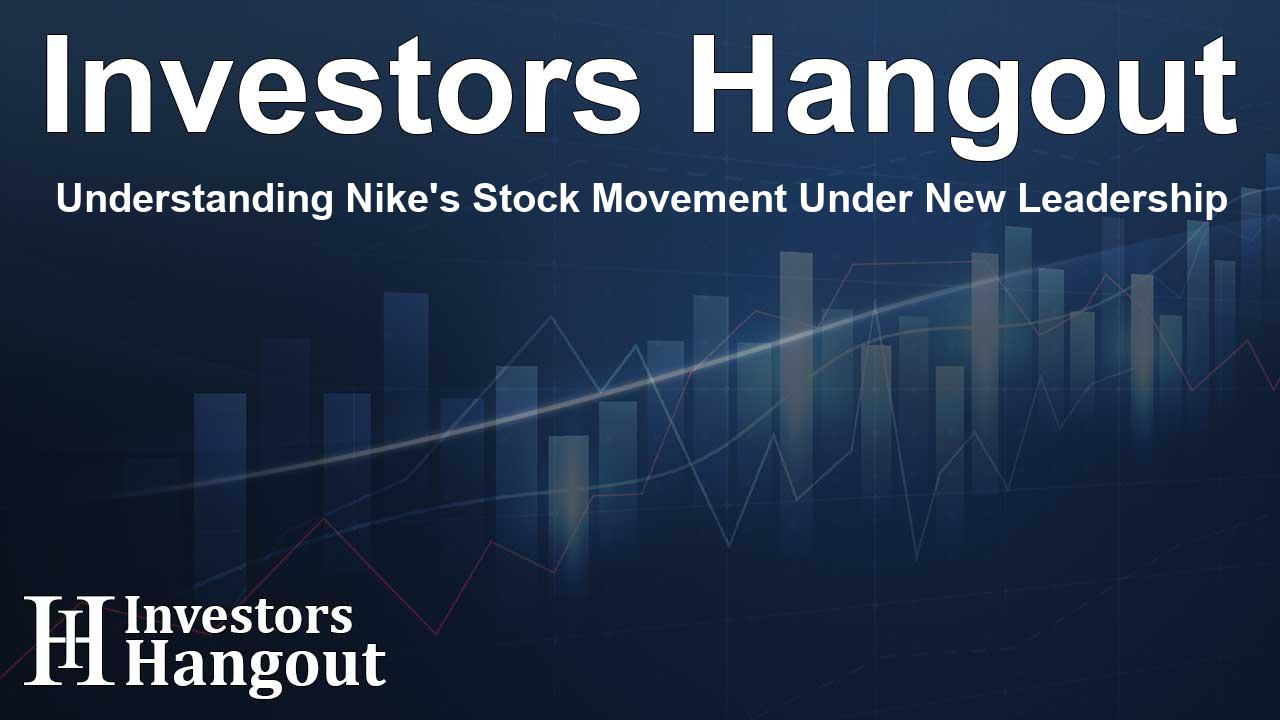Understanding Nike's Stock Movement Under New Leadership

Nike's Stock Insights Following Leadership Change
Recently, shares of NIKE, Inc. (NYSE: NKE) have experienced notable activity as the company announced the appointment of Elliott Hill as its new CEO. This leadership change is being closely watched as it aims to revitalize sales by strengthening relationships with retailers.
Resistance Levels in Nike's Stock Performance
Despite the positive news surrounding leadership, Nike's stock has encountered resistance at approximately $88.50 per share. This level is significant as it was previously a support level earlier in the year. It’s not uncommon for prior support levels to turn into resistance once the price breaks through them, a phenomenon observed across various financial markets.
The Psychology Behind Stock Movements
The concept of investor psychology is crucial to understanding how support and resistance levels function in stock trading. When investors initially buy shares at a support level, they often feel optimistic about their decision. However, when prices decline below that support, regret can set in, leading to a shift in trading behavior.
Impact of Regret on Trading Decisions
Many investors who purchased shares of Nike at the April support level found themselves facing losses when the stock price broke to lower levels. As some of these investors became worried about their declining investments, they began to consider selling their shares, which aggregated into sell orders when the stock returned to their original purchase price. This collective effort to break even can reinforce the resistance at that price level.
Further Resistance at $97.50
Interestingly, a similar pattern can be seen around the $97.50 range, where another support level transformed into resistance after being tested multiple times. This pattern suggests that the psychology of buyers and sellers plays a pivotal role in the stock's price movement.
Anxiety and Its Effects on Stock Prices
When stocks reach a resistance level, it can trigger anxiety among investors who contributed to that resistance with their sell orders. Worrying that they might miss the opportunity to sell at the desired price, many will adjust their selling prices lower, creating a cascading effect that can rapidly drive the stock price down.
Conclusion: Mastering Trader Psychology
Successful traders often leverage their understanding of market psychology and the formation of support and resistance levels to make informed trading decisions. This knowledge enables them to capitalize on the inherent behaviors exhibited by their fellow traders.
Frequently Asked Questions
What led to the increase in Nike's stock price recently?
The appointment of Elliott Hill as CEO aimed to improve retail relationships and boost sales.
What role do support and resistance levels play in trading?
They indicate price levels where stock movements tend to change, influenced by trader psychology.
How can investor psychology affect stock prices?
Psychological factors can lead to collective trading behaviors that reinforce resistance or support levels.
What is the significance of the $88.50 resistance level?
This level was previously a support line, illustrating how past price behaviors can influence current trading strategies.
Why are traders anxious at resistance levels?
Traders fear missing the chance to exit their positions without taking losses, prompting them to lower sell prices.
About Investors Hangout
Investors Hangout is a leading online stock forum for financial discussion and learning, offering a wide range of free tools and resources. It draws in traders of all levels, who exchange market knowledge, investigate trading tactics, and keep an eye on industry developments in real time. Featuring financial articles, stock message boards, quotes, charts, company profiles, and live news updates. Through cooperative learning and a wealth of informational resources, it helps users from novices creating their first portfolios to experts honing their techniques. Join Investors Hangout today: https://investorshangout.com/
Disclaimer: The content of this article is solely for general informational purposes only; it does not represent legal, financial, or investment advice. Investors Hangout does not offer financial advice; the author is not a licensed financial advisor. Consult a qualified advisor before making any financial or investment decisions based on this article. The author's interpretation of publicly available data shapes the opinions presented here; as a result, they should not be taken as advice to purchase, sell, or hold any securities mentioned or any other investments. The author does not guarantee the accuracy, completeness, or timeliness of any material, providing it "as is." Information and market conditions may change; past performance is not indicative of future outcomes. If any of the material offered here is inaccurate, please contact us for corrections.